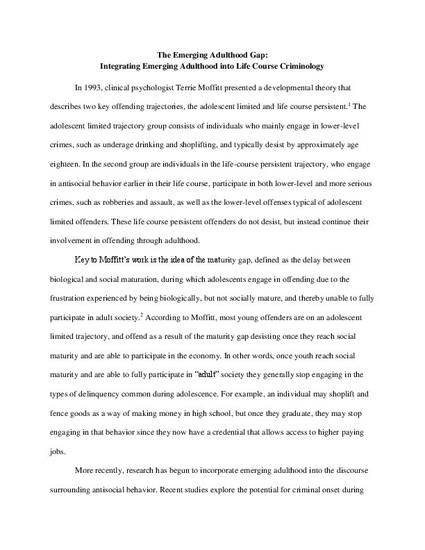
The aim of this study is to provide a theoretical mechanism, the ‘emerging adulthood gap,’ to integrate emerging adulthood into the life course or developmental area of criminological theory. This paper will present the ‘what’ of the emerging adulthood gap by introducing the concept and integrating it into existing theoretical paradigms, the ‘how’ by examining how social circumstances have altered the life course leading to the evolution of emerging adulthood as a distinct stage of the life course and to the ‘emerging adulthood gap,’ and the ‘why’ of the ‘emerging adulthood gap’ by discussing the decreased level of informal social controls experienced by those in emerging adulthood, which may make those in this stage of the life course prone to offending, substance abuse, and risky behaviors as part of their identity exploration and the instability characteristic of emerging adulthood, thereby tying emerging adulthood into criminological theory.
Available at: http://works.bepress.com/christopher-salvatore/22/
